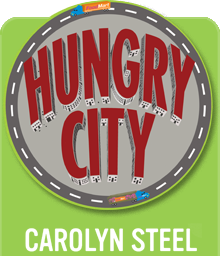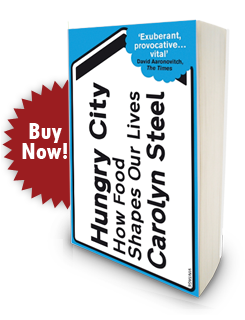Posted by Carolyn on July 31, 2008 at 1:53 pm
The collapse of the latest round of World Trade talks is tragic, but the greater tragedy would be if it were to spell the end of any further attempts to reach a global agreement on trade. The reasons for the failure are familiar: a disagreement between developed and developing nations over farm subsidies. But with the global food crisis upon us, the old battle-lines are https://aucasinosonline.com/uk/ starting to look increasingly short-sighted – suicidal, even. The enormous challenge of feeding the world in the coming century should be bringing nations together, not pushing them apart. Let’s hope that by the time ministers reconvene in Geneva in December, they have had a change of heart.
Collapse of World Trade talks
Posted by Carolyn on July 20, 2008 at 11:38 pm
Know that Guinness ad, ‘Good things come to those who wait’, or something like that? Well, I feel a bit like that about this review from The Independent. It took a while coming, and is far less wordy than some of the others I’ve received, yet it manages to capture something about the book that others haven’t, with a lot less effort than most.
The Independent Review
Posted by Carolyn on July 20, 2008 at 11:23 pm
Mea Culpa. I have been a very remiss blogger of late. My only excuse is that things have been a bit hectic recently, and I’m not used to it. I know that’s a bit like saying ‘the dog ate my homework’, but there it is. I’m not used to blogging either. But I am trying to do better.
I did want to say a word or two about the talk I gave at the LFA last week, because it was a thrilling moment for me in many ways. It was my first ever public lecture, and it took place in a building – the Coin Street Neighbourhood Centre, by Haworth Tompkins – that is testimony to what can be achieved when people say ‘no’ to the forces of Mammon. A subject very close to my heart, and one that is a consistent thread through Hungry City.
In short, Coin Street, like Covent Garden (which I deal with in the book) is one of the most successful modern urban developments in London, yet would not exist were it not for a bunch of dedicated locals having kicked up a fuss when their neighbourhood was due to be bulldozed and turned into a faceless office precinct. I know I am summarising a complex socio-political problem in a few clichéd phrases, but I hope you get the picture. Cities NEED these nuggets of resistance: these knotty, belligerent, don’t-play-the-game, sod-you passionate pockets of identity that distinguish one place from another, provide the grit that allows the urban crystal to thrive.
So it felt great to be in Coin Street to talk about ‘How Food has Shaped London’, the subject of my talk. Even greater to be there with the fabulous Sheila Dillon in the chair (my dream come true) and such a fantastic panel of respondents, among them Arthur Potts-Dawson, a truly inspirational chef who was the ‘backroom boy’ in Jamie Oliver’s first Fifteen restaurant and has since set up two of his own – Acorn House and Water House – which between them have created an entirely new and vital category of eatery: the eco-restaurant. (I could go on, but won’t for now: Arthur deserves an entire post of his own). My other two respondents were equally august: the architect Sarah Wigglesworth MBE, who runs a pioneering practice from her equally pioneering ‘straw-bale’ house in London; and George Nicholson, who might in this context be described as the ‘missing link’, since he was instrumental both in the reinvention of Borough Market and the Coin Street development.
To be standing in such a room, with such a chair and panel, in front of such an audience, talking about food and cities, felt extraordinary. Perhaps I can be forgiven for not blogging more now. These are amazing times, and I find it hard not to gush.
Posted by Carolyn on July 20, 2008 at 10:09 pm
I had one of the more surreal experiences of my life today – listening to an edition of the Radio Four Food Progamme featuring – me! If you have been listening to the Food Programme for as long as I have (long enough to think of Derek Cooper as a beloved friend and to recall Sheila Dillon’s first broadcasts as a presenter) you will probably have some idea of how extraordinary – and thrilling – it is to find yourself the subject of such an august institution.
After I had recovered from the initial shock of hearing myself on air with one of my broadcasting heroines, I could only wonder at what the producer Dan Saladino (great name for a food programme producer) called, only half tongue-in-cheek, the ‘magic of radio’. Most of the magic in this case was down to Dan, who somehow transmogrified my series of verbal ramblings (recorded on different locations) into some sort of logical flow. All made possible by the expertly-shaped questions Sheila fed me as we went.
I think they did a fantastic job, but then I am biased! Why not have a listen and see what you think?
The Radio 4 Food Programme, 20th July 2008
Posted by Carolyn on July 8, 2008 at 12:32 pm
You might have found it a little strange that Gordon Brown had to go all the way to Japan in order to lecture us on the amount of food we waste in Britain. The private contents of our dustbins would seem to be a domestic problem – something to discuss in hushed tones amongst ourselves. But nothing could be more appropriate. As Gordon rightly pointed out, the amount of food we waste in Britain (around a third) is linked to a global problem – one in which food systems are geared up to deliver ‘cheap’ food to some countries (including ours) at the expense of others. The findings have come from a government Strategy Unit report entitled Food Matters published yesterday – see below. They might also have come from Hungry City, since this is one of the central arguments in my book!
It seems that the governments of industrialised nations are finally waking up to the fact that the food problem is not about to go away. Food is at the top of the G8 agenda, where it should have been for decades. Thank goodness for that. At least we are starting to ask the right questions now – finding the right answers might prove a little more tricky, but at least it’s a start.
Food Matters on BBC news
Posted by Carolyn on July 8, 2008 at 11:45 am
I had a great chat the other day with Pamela Buxton about Hungry City for Building Design, and it made me realise (funny how that happens when you’re in the midst of conversation) that I am more passionate than ever about getting architects and urban designers to think more about (and through) food. Which is why I’m really pleased that she wrote such a great article for BD. Do check it out:
Building Design article
Posted by Carolyn on July 8, 2008 at 11:33 am
Another review, this time in the Guardian, focussing on Hungry City’s historical content. I am amazed at the range of reviews the book has received: to read all of them, you would think I had written ten completely different books. I suppose it just goes to show that Hungry Cityis a very kaleidoscopic book – one from which readers can take what they like. Which, come to think of it, was exactly what I was trying to write: a book for people to chew on, to get them thinking. I guess it also means that if you really want to know what Hungry City is like, you are going to have to read it for yourself!
The Guardian review
Posted by Carolyn on July 1, 2008 at 5:12 pm
More reviews, from David Aaronovitch in The Times and Bonnie Powell in the Financial Times. The former describes Hungry City as ‘ebullient, provocative and irritating’ which pretty much sums up his review – but since he also admits the book’s central argument is ‘vital’ and it is listed as ‘Required Reading’, I am not complaining! Bonnie Powell in the FT finds Hungry City ‘wide-ranging and engaging’ and raises many important issues (as she states on her blog) but thinks there is too much in it! I disagree of course, but perhaps you would prefer to read it and decide for yourself!
The Times Review
The Financial Times Review










